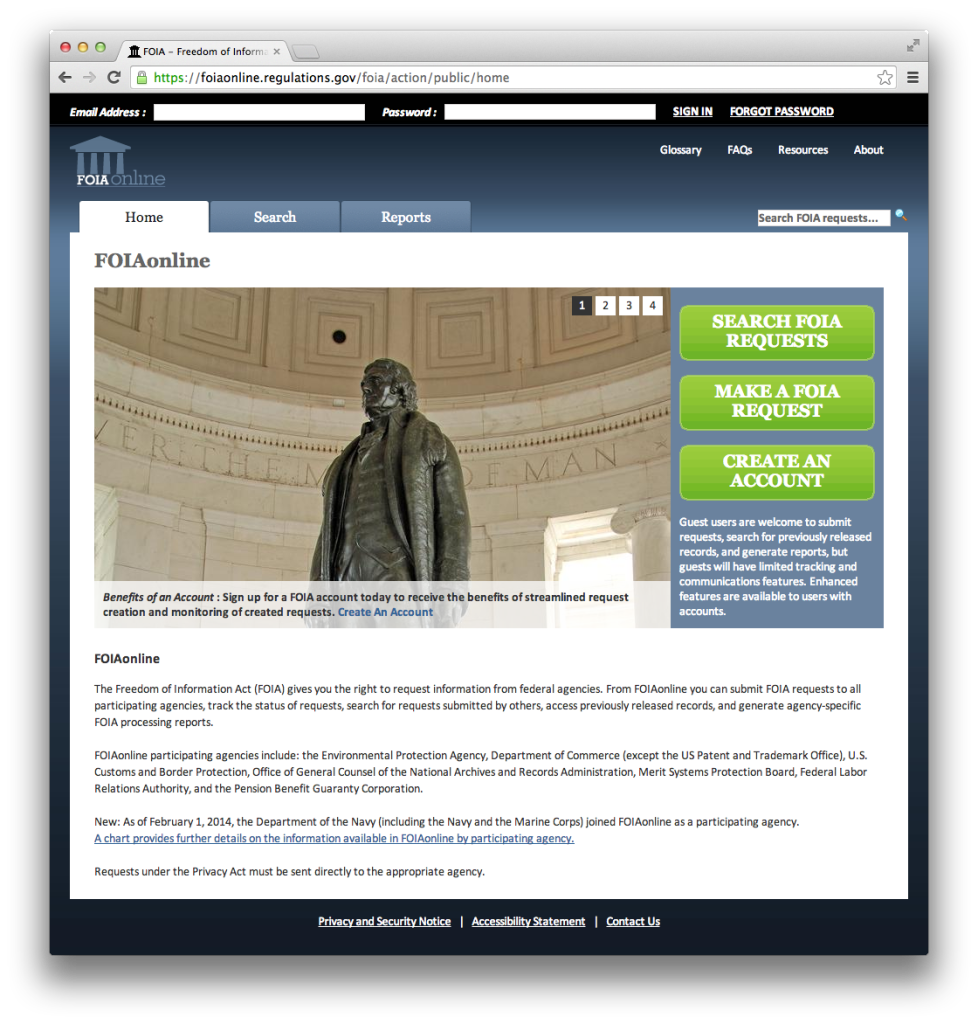Proposed Federal FOIA Reforms Are Good Model for New York
 The U.S. Congress has been producing a steady flow of new bills that seek to expand transparency and open the government, and that offer some good ideas for states and cities. Earlier this month, the Transparency in Government Act was introduced in Congress by Representative Mike Quigley (D) Illinois. The people at Citizens for Responsibility and Ethics in Washington (CREW) have highlighted some of their favorite elements, which are listed below. We would like to see all of these provisions adopted by New York State and New York City.
The U.S. Congress has been producing a steady flow of new bills that seek to expand transparency and open the government, and that offer some good ideas for states and cities. Earlier this month, the Transparency in Government Act was introduced in Congress by Representative Mike Quigley (D) Illinois. The people at Citizens for Responsibility and Ethics in Washington (CREW) have highlighted some of their favorite elements, which are listed below. We would like to see all of these provisions adopted by New York State and New York City.
- Better tracking of lobbying by broadening the definition of lobbyist, improving the tracking of lobbying activity (in part through the use of unique entity identifiers), and more frequent disclosures by lobbyists of political contributions; improved access to information on lobbying on behalf of foreign entities; and public access to statements by grantees and contractors certifying that they have not used money awarded by the federal government to lobby (the SF-LLLs).
- Enhancing transparency for contracts, grants, and loans through improved data quality, better disclosure (including electronic) and improved compliance.
- Improving transparency of non-profit organizations by requiring non-profit tax forms (990s) to be available online in a central location (replacing the current ad hoc disclosure system).
- Improving the Freedom of Information Act by publishing completed requests online in a searchable database and requiring notice of efforts to carve out exemptions to FOIA.
Here is CREW’s full blog post on the Transparency in Government Act. Interestingly, these proposed improvements to the federal Freedom of Information Act take the lessons learned from FOIA Online and Oakland’s centralized online FOIL system (which we have written about here and here, respectively) and apply them to all federal agencies.
It’s worth noting that federal agencies are already required to report on how they handle FOIA requests – something New York City and State agencies are not. Given the fact that most state agencies in New York are out of compliance with basic FOIL requirements, and that there is a similarly widespread failure to comply with FOIL in New York City, we would strongly welcome this kind of reform in New York.
